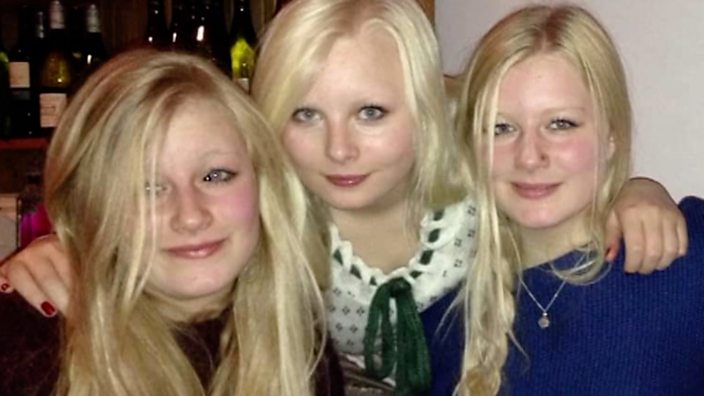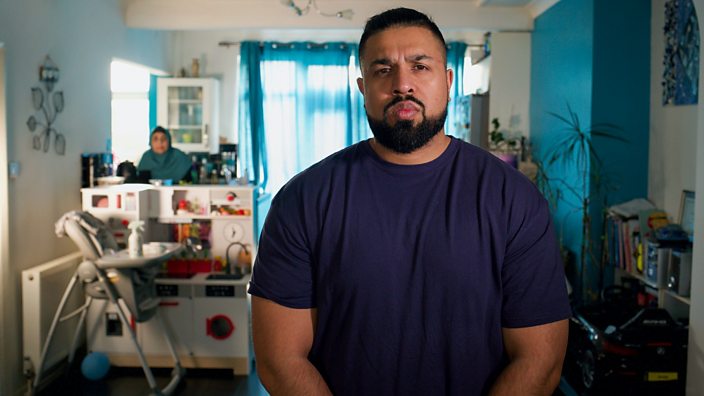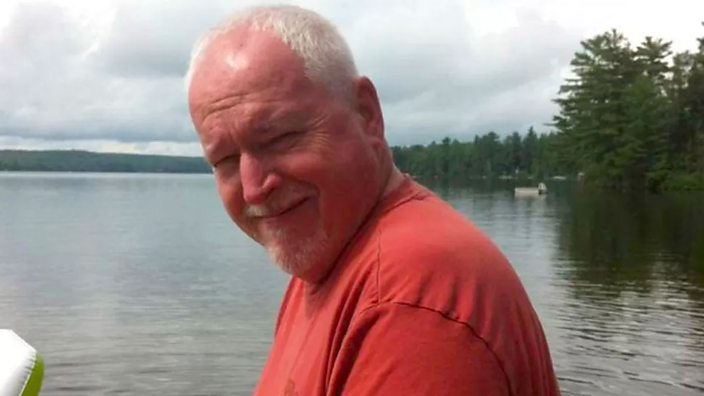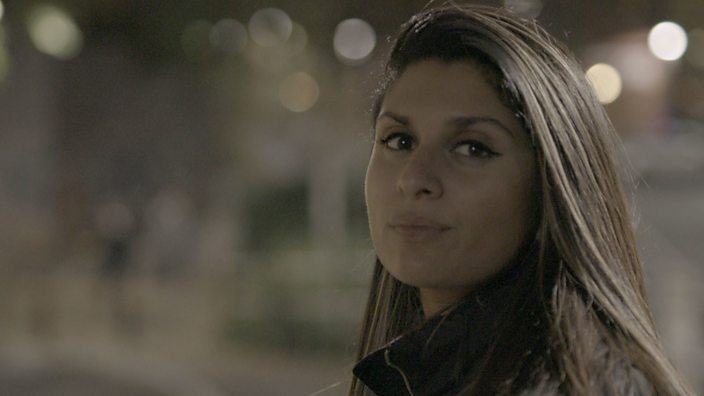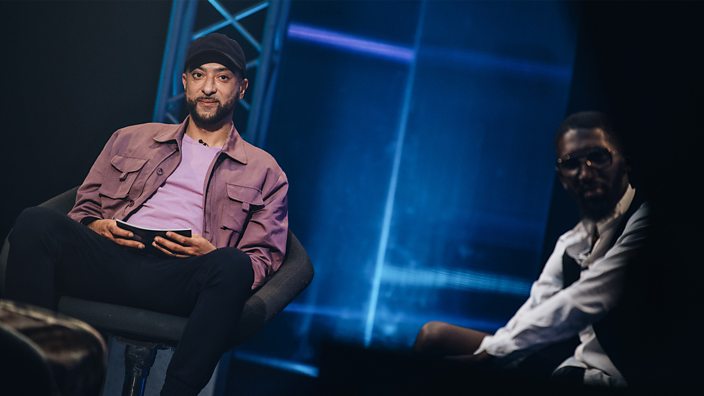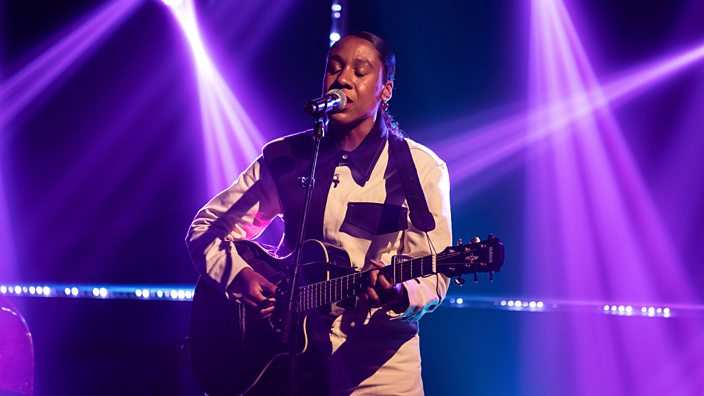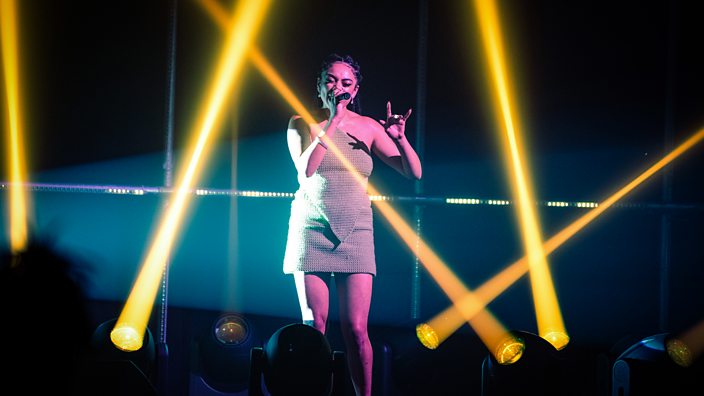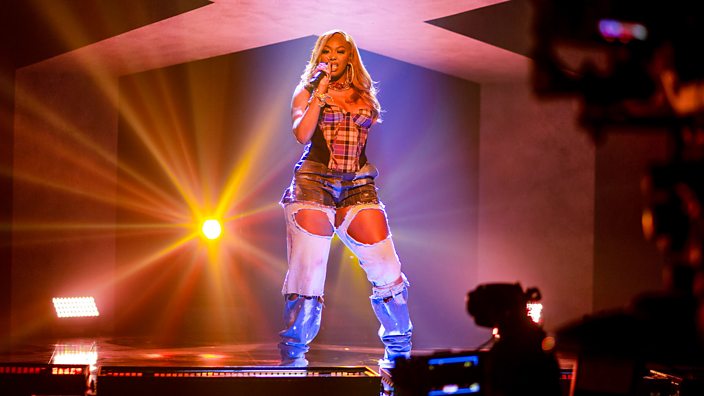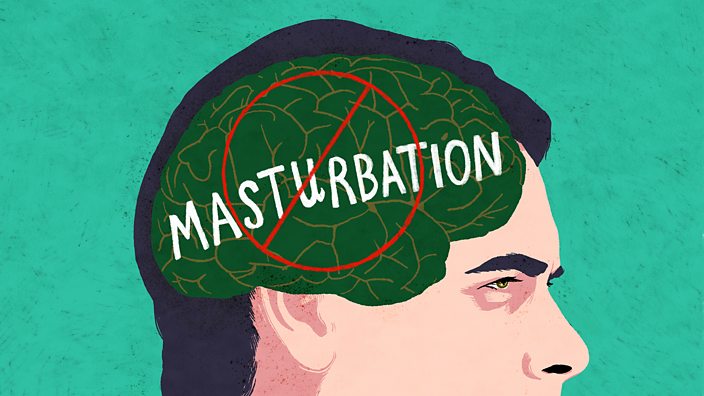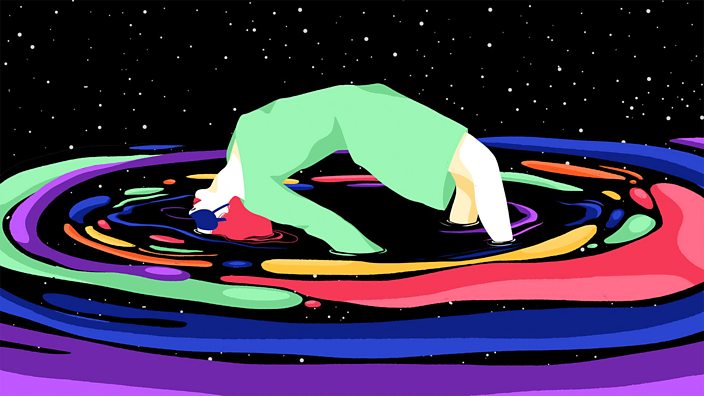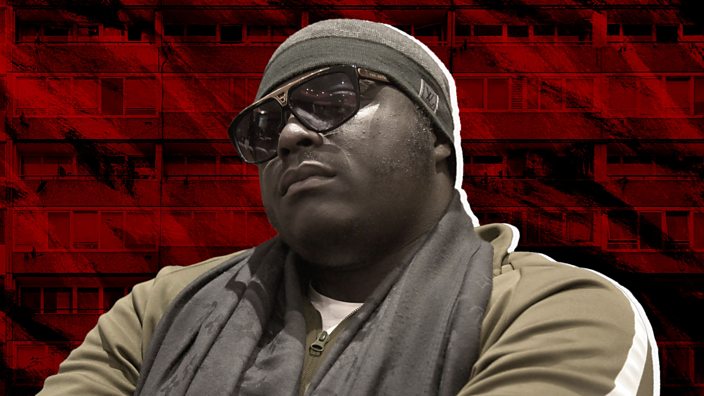 BBC
BBCYoung Dizz: Is gospel drill the new hymn of the streets?
Its lyrics reference grabbing souls into church, rather than gang rivalries like some traditional drill music
“All my life has been a trail of violence. Violence, violence, violence - and I’ve only changed in the last year,” says Kevin Yfeko, a Londoner and former gang leader. “I stopped because I saw a church that could help me. My church, Spac Nation, is offering gang members the thing that the government and the authorities can’t offer them - a way out.”
Kevin, who's in his late twenties, recently became a church leader. He tells BBC Three that his church, which holds its services around London, is attended by some of the “most dangerous” gang members in the capital. These services can last up to six hours and feature performances of gospel drill music, with lyrics that reference grabbing souls into church, rather than gang rivalries. Spac Nation has its own hierarchy of leaders, and none of its pastors are ordained by a recognised religious authority.
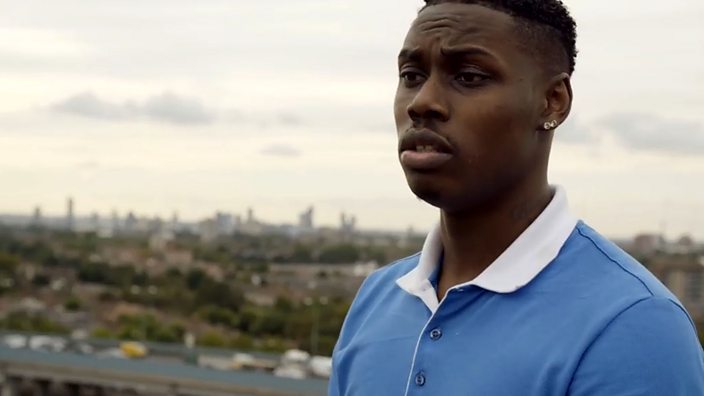 BBC
BBCDrill music, in its original form, is a hard-line subsect of trap music. Founded in Chicago in the last decade, it originates from a deprived working-class black community left to fend for itself, and reflects the gang-related violence that has come with that.
Appearing in a new BBC Three series, Escaping Gangs: Death, Jail or Redemption, Young Dizz is one rapper who seems to exemplify popular criticisms of drill music: a gang leader who raps about wanting to leave his gang lifestyle behind and who keeps getting drawn back. But his story is also one that is tied to a wider narrative of drill’s emergence from the underground, and a movement seeking to rehabilitate some of London’s most violent gang leaders.
Embroiled in East London gang life after his mother died when he was a teenager, Dizz left college and became, in his words, “perceived as a violent person on the streets”. Now 22, some call the rapper by the nickname ‘The Devil’.
“All the people that I grew up with, that I looked up to, were gang members,” Dizz recalls. “My uncles were all involved in the gangs. When I was growing up, all I knew was gang, gang, gang.”
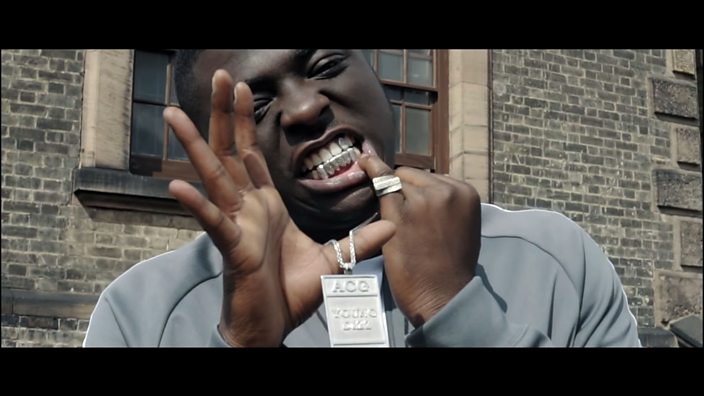 Young Dizz / YouTube
Young Dizz / YouTubeKevin knows better than anyone that change is possible. The former “leader of one of the most notorious and violent gangs in East London”, he admits that he first came to the church in 2016 to “do something to someone”, but started listening to the sermons and forgot his initial motives. “Now, I’m still a leader, but I’m leading people off the streets,” he says.
Dizz tells the Spac Nation leaders that he wants to escape the gang lifestyle he was born into. The rapper was shot and stabbed 11 times only months prior to filming, which prompted Kevin, who was once his gang leader, to recruit him into the church. “Dizz is family,” Kevin says. “Music was his expression and everybody wants to change – no one wants to live that gang life – so when I told him to come to church, he did straight away.”
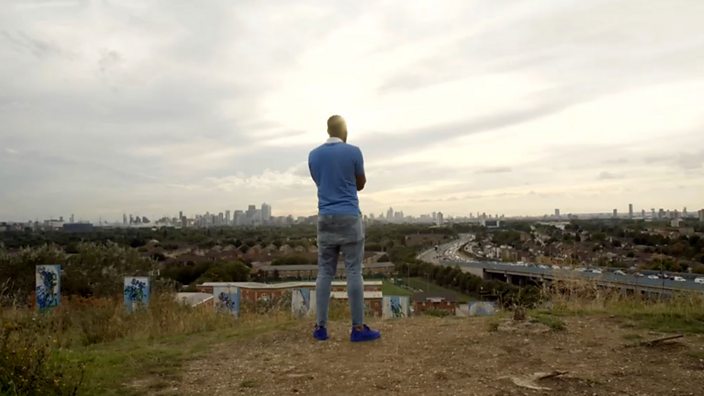 BBC
BBCDrill music’s lyrics are known for being highly detailed about the violent acts they depict. As the genre made its way to the UK over the last seven years, it’s been accused of being tied to London’s gang culture, with its adopted balaclava uniform, gang signs and crews.
Many tracks make lyrical reference to violent rivalries and drive-by shootings, and some drill artists have been accused of inciting violence in real life. Metropolitan Police commissioner Cressida Dick said that the genre’s lyrics are “about glamourising serious violence,” adding, “They describe the stabbings in great detail, joy and excitement.”
Last year, the rapper M-Trap 0 was convicted of the murder of 15-year-old Jermaine Goupall after penning lyrics on stabbings. The capital is currently experiencing a surge in knife crime, and last year saw a 10-year high of 132 homicides.
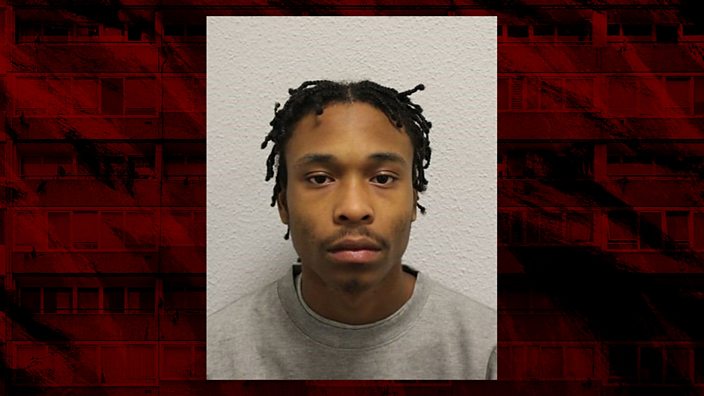 Met Police / BBC Three
Met Police / BBC ThreeAt the start of this year, the Metropolitan Police had asked YouTube to take down a total of 129 drill videos to date, 102 of which the site has pulled. In mid-2018, only 30 drill videos had been removed from the site since September 2015. In January, the rappers Skengdo and AM were both given nine-month suspended prison sentences for performing their banned song ‘Attempted 1.0’ at a gig, as it was ruled to incite violence against a rival gang member. In response to the ruling, Detective Inspector Luke Williams, of Lambeth and Southwark's Gangs Unit, said: "The court found that violence in drill music can, and did in this case, amount to gang-related violence."
Critics of the police crackdown on drill have questioned whether expressions of the reality of some young people’s lives in cities like London should be criminalised. Does drill culture in isolation encourage further crime? Spac Nation hopes to answer these questions by rehabilitating drill’s image and those of its rappers, like Young Dizz.
Founded in 2005 by Nigerian-British multi-millionaire businessman Tobi Adegboyega, now known as Pastor Tobi, the church says it serves over 2,000 members across London. Alongside gospel drill, its services feature motivational sermons as much as Bible readings, and its leaders encourage congregants to turn away from the gang lifestyle.
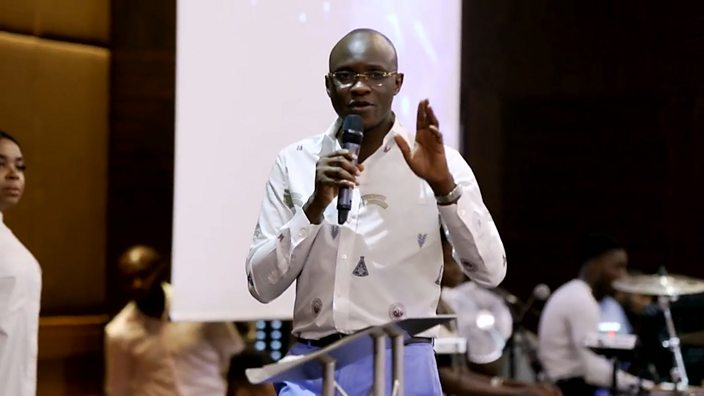 BBC
BBCAfter moving to Peckham from Nigeria in 2005, Tobi took a job at a local cybercafé. “Back then,” he says, “Peckham was very dangerous. I would hear gunshots every day, and those same guys would then often come in to use our computers to commit fraud.” Apparently overwhelmed by the lack of positive influence in these young people’s lives, he started up an impromptu worship group in the shop, which he began to refer to as a church in 2007. The aim of the church was not just to spread the gospel, but to “inspire young people to live their life legitimately".
For Tobi, the charitable enterprises already working to get kids off the streets are “a joke because they don’t effect any change”, so he decided to start funding congregants’ business enterprises, encouraging them to become financially independent rather than rely on criminality. To date, he estimates he has loaned over £5m to members of the church, and says the organisation funds over 40 businesses - although, since none of these records are publicly available, Tobi holds authority on the facts and figures.
In 2015, he rebranded the church as Spac Nation and began targeting gang members as new recruits. The air of mystery around both Pastor Tobi and the church have subsequently led many to question its legitimacy as a charitable organisation, with some even calling it a cult. In fact, the hierarchy of the church seemingly mirrors that of gang organisations, with the emphasis on new members proving their commitment by signing up other young recruits, and consequently earning the title of minister, evangelist and, finally, pastor, when they can lead their own services. “This process could take six months or a year,” Tobi says. “And their age doesn’t matter - the younger the better, since they’re closest to the people still on the street.”
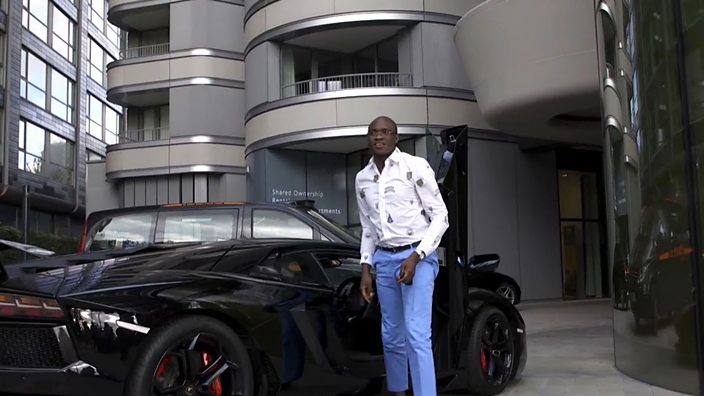 BBC
BBCPastor Tobi might not fit many people's typical image of a religious leader. Dressed in tailored suits, sporting a gold Rolex and driving a Lamborghini, he hopes his lifestyle will encourage others to pursue a legitimate career – although when I pressed him on the source of his own wealth he was vague, referring only to “various businesses and lines of credit". “We need to provide them with substance,” he says. “If I have to borrow money to help them, I will do it.”
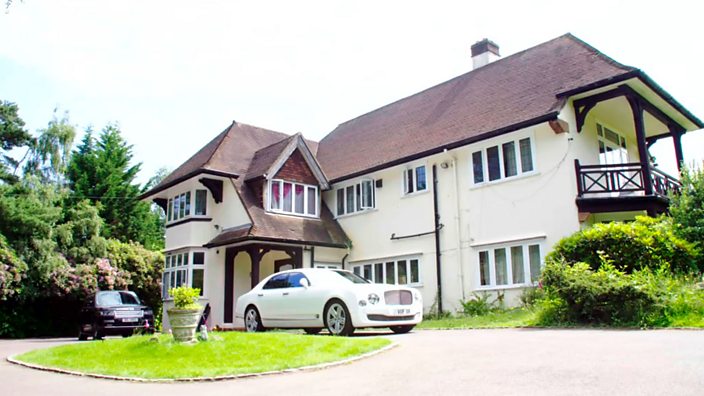 BBC
BBCWhen Kevin takes Dizz to his church leader’s home, the rapper is clearly impressed by Tobi's huge house and expensive cars. Dizz and Tobi take seats on opposite sides of a desk in an office where paintings of tigers hang on the walls. Tobi asks Dizz about his nickname, 'The Devil'. “It’s just another name for me,” says Dizz. “I got shot and stabbed.”
“I think God kept you alive,” says Tobi.
“People always ask me, ‘Why you always so angry?’” says Dizz. “I’m just angry, man. I’m pissed off 24/7.”
But Tobi has a clear vision for Dizz’s future. “I think success is the best way to retaliate,” he tells him.
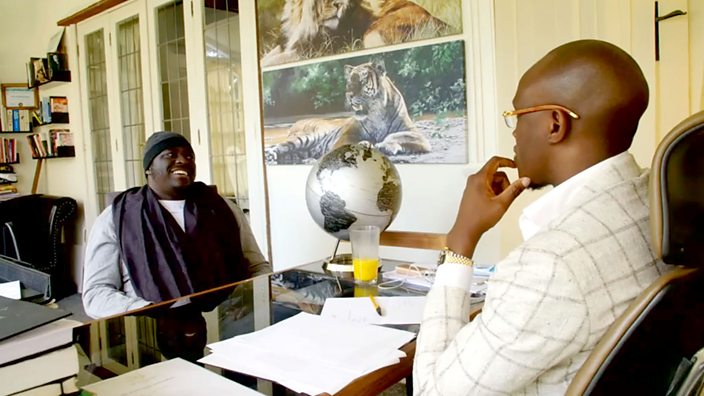 BBC
BBCOnce Kevin gets Dizz into the church, the rapper is chosen to head up a new project to sanitise and destigmatise drill music - basically, keeping with trap-style beats but cutting the violent lyrics. The church already runs a gospel drill group called Hope Dealers, whose motto is “I ain’t your average driller”. But Tobi sees a wider appeal with Dizz: “He has the street appeal, he can make things happen in that area, he has a lot of influence over those kids.”
Following the service, Dizz says he feels “blessed”. “That’s my only fear out here, God’s judgement,” he admits. “That’s the main thing in my life, innit, God’s judgement.”
Tobi tells us he was going to help Dizz set up a studio but, before the project could start, Dizz was arrested on charges relating to kidnapping and assault, which occurred weeks after he came to the church.
“Dizz was very respectful when we met,” the church leader says, speaking to BBC Three after filming. “He came to the church a couple of times and I do believe without any doubt at all that he was changing, but he was very distanced from us.”
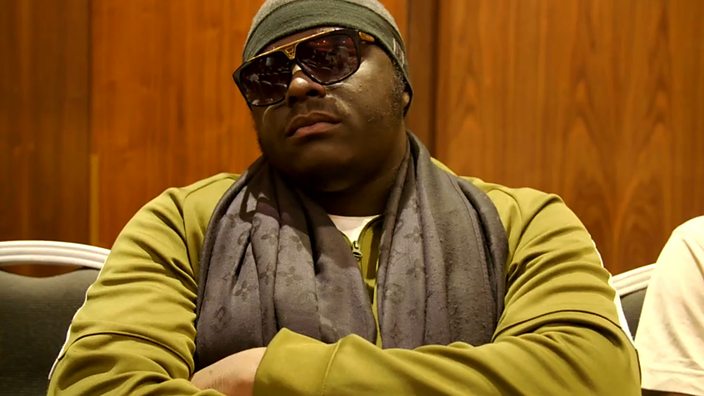 BBC
BBCWithout Dizz, Tobi is still pushing on with Hope Dealers and using drill to connect with young gang members. “It’s not possible to vouch for everybody and we didn’t know this would happen with Dizz,” he says. “But, before we fund anyone, we do our work to make sure they’re responsible. We’re now in talks with record labels to focus on the Hope Dealers message.”
Tobi recounts the moment he felt he might have got through to Young Dizz. He asked him whether his mum would have been proud of his actions today. “That got to him,” he says. “His face went down, it reddened and he looked like he would cry. But, when you’re from the street, you don’t admit to needing help, you can’t take it, so he didn’t change.”
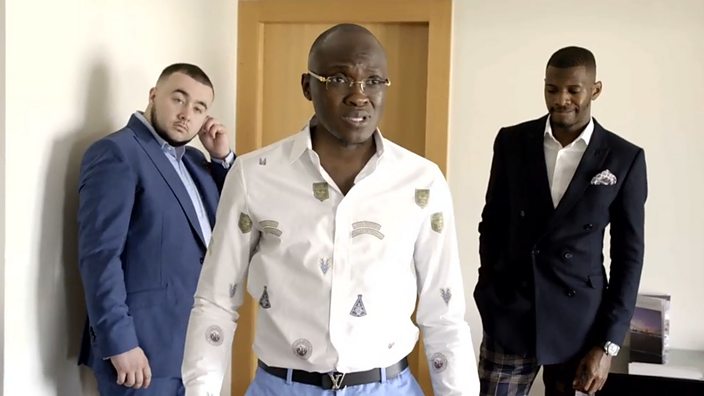 BBC
BBCPart businessman, part spiritual leader, it is hard to know what to make of Pastor Tobi. What is certain is that he has vast influence over some of the most violent former gang leaders in London. Unsurprisingly, he says he has been contacted by the police to help set up meetings with them. “Scotland Yard was shocked the day they had a meeting with me, and they realised that I can get them to the gang leaders,” he recalls. “I have such influence because they will listen to me, they see me as part of them. I’ve never understood crime in my life, but I hear them for who they are.”
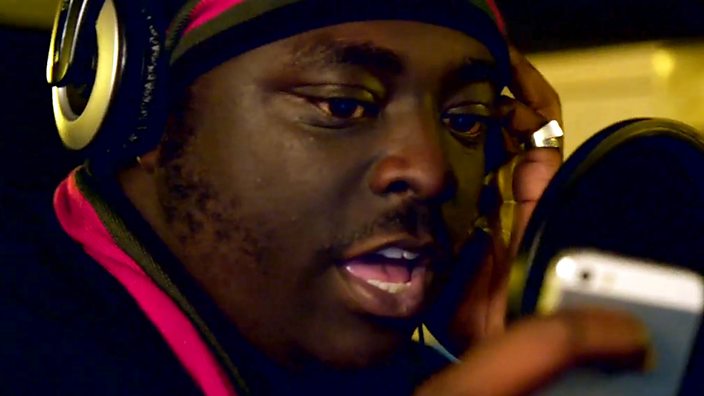 BBC
BBCDizz has since been found guilty on charges of GBH with intent, conspiracy to kidnap, conspiracy to blackmail, conspiracy to falsely imprison and perverting the course of justice. He will be sentenced in April. Tobi still has grand ambitions for the church though, hoping to create their own 'micro-economy' through financing businesses and nurturing the next generation of politicians.
“Most of the violent crime in the media is committed by young black people,” he says. “And so I want the perspective of the community to change towards them, to respect them as professionals rather than criminals. I’m going through that myself; people might think I’m dodgy and I understand that, but I want people to be given the chance to be seen for who they are, otherwise, how can any of us truly change?”
This article was originally published on 22 March 2019.
